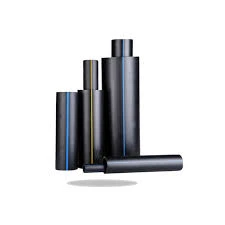Oct . 13, 2024 21:45 Back to list
Polypropylene Board Applications and Benefits in Various Industries
Understanding Polypropylene Board Properties, Applications, and Advantages
Polypropylene board, commonly known as PP board, is a versatile and innovative material made from a polymer called polypropylene. This synthetic resin is a member of the polyolefin family and is derived from the polymerization of propylene gas. Known for its exceptional durability and lightweight nature, polypropylene board is increasingly popular across various industries, including packaging, construction, and signage.
Properties of Polypropylene Board
One of the primary characteristics of polypropylene board is its resistance to chemicals and moisture, making it ideal for applications where exposure to harsh substances is a concern. This board can withstand acids, bases, and various solvents, which is particularly useful in laboratory settings or industries dealing with corrosive materials. Additionally, polypropylene board is known for its high impact resistance, enabling it to absorb shocks without breaking or deforming.
Another significant property of polypropylene board is its light weight combined with stiffness. This balance allows it to maintain structural integrity while being easy to handle and transport. The board can be produced in various thicknesses and colors, allowing customization for specific applications or aesthetic preferences.
Polypropylene board is also UV resistant, which prevents degradation when exposed to sunlight over extended periods. This feature makes it suitable for both indoor and outdoor applications, from outdoor signage to protective covers. Furthermore, the board is non-toxic and can be recycled, enhancing its appeal in today’s environmentally conscious market.
Applications of Polypropylene Board
The applications of polypropylene board are vast and varied. In the packaging industry, it is commonly used for creating lightweight containers, boxes, and other forms of packaging that require durability without added weight. Its moisture-resistant properties help in protecting the contents from environmental factors, ensuring higher quality and longevity.
polypropylene board

In the construction sector, polypropylene boards are used for wall partitions, ceiling panels, and even flooring materials. They provide thermal insulation and are easy to install and maintain. Their lightweight nature makes them a preferred choice for modular construction and temporary structures, reducing the overall weight and stress on foundations.
Polypropylene board is also widely used in signage and advertising. Its printing quality is excellent, allowing vivid colors and sharp graphics to be displayed. This makes it a popular choice for outdoor advertising, banners, and point-of-sale displays. The board’s resistance to fading and wear from weather conditions ensures that the signage remains attractive and informative for prolonged periods.
Additionally, in the medical and food industries, polypropylene boards are utilized as cleanroom materials due to their hygienic properties. They can be sterilized easily and help maintain cleanliness in sensitive environments. Their ability to be molded into various shapes further extends their usability in creating custom solutions for specific medical equipment or food storage needs.
Advantages of Using Polypropylene Board
The benefits of opting for polypropylene board go beyond its intrinsic properties. Its cost-effectiveness makes it an attractive option for businesses looking to maintain quality while managing expenses. The board’s longevity reduces the need for frequent replacements, ultimately leading to cost savings in the long run.
Moreover, the ease of fabrication and customization allows for innovative design solutions tailored to specific requirements. Whether it’s adjusting thickness, color, or shape, manufacturers can meet diverse customer needs efficiently.
In terms of environmental impact, the recyclability of polypropylene board aligns with the increasing demand for sustainable materials. By choosing PP board, companies can contribute to reducing waste and promoting a circular economy.
In conclusion, polypropylene board is a remarkable material that offers a myriad of advantages across various applications. Its unique properties, high versatility, and positive environmental impact make it a preferred choice for businesses aiming to achieve efficiency without compromising on quality. As industries continue to evolve, the demand for innovative solutions like polypropylene board is set to rise, paving the way for a sustainable future.
-
High-Quality PPR Pipes and Fittings Durable ERA PPR & PVC PPR Solutions
NewsJul.08,2025
-
Black HDPE Cutting Board - Durable, Non-Porous & Food Safe HDPE Plastic Cutting Board
NewsJul.08,2025
-
High-Quality CPVC Panel Durable HDPE & PVC Panels Supplier
NewsJul.08,2025
-
Double PE Welding Rod Supplier - High Strength, Durable & Versatile Welding Solutions
NewsJul.07,2025
-
High-Quality PVC-O Pipe Supplier Durable 75mm PVC Pipe & Connections Leading PVC Pipe Company
NewsJul.07,2025
-
HDPE Drainage Pipe Supplier – Durable & Corrosion-Resistant Solutions
NewsJul.06,2025

